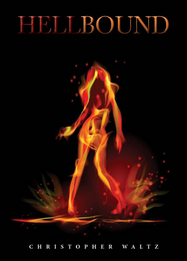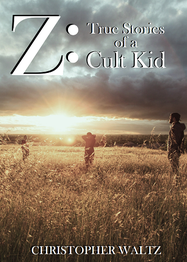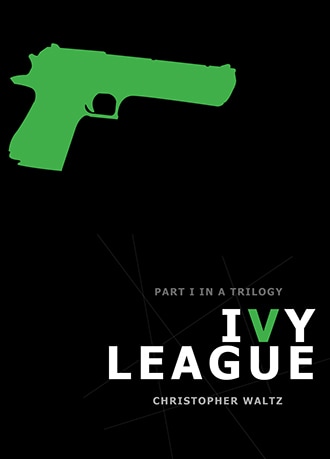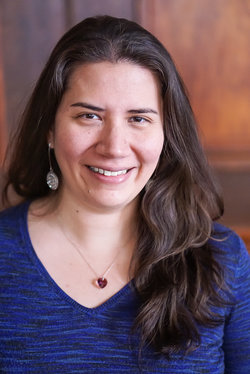|
Welcome to week ten of the #WritersQuick5 series - where we learn about writing from fellow writers. This week I’m very excited to introduce you to Christopher Waltz, an author with a genre that totally fascinates me - horror. I personally believe it takes a lot of creativity to write horror. You have to know just when to ratchet up the suspense and you have to be ruthless with your reader's emotions. Christopher also writes YA - and in a new genre to me - YA horror. As an avid reader of YA novels, that marriage of styles totally intrigues me. Christopher has self-published several novels, has traditionally published several short stories, and is creator and lead writer of the Dead Oaks Podcast, a horror anthology podcast that releases a new episode every two weeks. I met Christopher through the writing platform Channillo.com where he currently has three book series to choose from. Let’s see what Christopher has to say… Question #1 - Where do you write and why do you write there? I wish I could say I'm one of those people who can just sit down and write anywhere, but as of late, I need to be in a public place to get any writing done. I don't know why, but if I'm at home, I get distracted way too easily and can't seem to organize my projects. However, if I'm at a coffee shop, or the library, or the community center, then it's right down to business. If I'm in public and have some coffee, then I'm good to go. Question #2 - What is unique about writing for your particular genre? Since I've been writing mostly YA recently, I'll say that it's very important to understand how people--particularly young people--talk and interact. One of my biggest pet peeves is reading a story or a novel where the dialogue is completely unbelievable. Luckily, I used to teach middle school English and currently still spend a lot of time working in high schools, so it's fairly easy for me to pick up on how teenagers speak to each other. But I also understand how it would be difficult for writers who aren't around teenagers often to get it, for lack of a better term, flat-out wrong. Question #3 - What are some of your grammar or punctuation pet peeves? As I said before, dialogue is a huge pet peeve for me. If you're writing about any group of people, whether it be teenagers, or the elderly, or people from a particular region--do your research and write their dialogue realistically. Other than that, I feel like I can't judge people too harshly on their writing styles (editing is another story...). I tend to write long, drawn out sentences with sort of obscure punctuation, and I'm sure that gets on many people's nerves. Some people hate semicolons and em dashes, but I love them. Question #4 - At what point in your writing process do you start to bring other people in to review your work? It sort of depends on the topic I'm writing. I'm very self-conscious about people reading my writing before I'm completely happy with it, so I usually don't bring editors or beta readers into the mix until pretty late in the game. However, I finished a novel in December, and the main character was captain of his school's swim team. I'm terrified of drowning and don't know a thing about swimming competitively, so I spoke to several different resources about good versus bad times for different swim strokes and what a typical practice looks like. It was extremely helpful to have an expert to turn to every time I needed information. Question #5 - What advice would you give to a new writer about the writing process? I would tell a new writer that the most important parts of the writing process are what happens both before and after you actually write. Writing is the easy part; It's what you love to do. Planning, plotting, editing, revising... those are what will really test you as a writer and show people you have what it takes to make it. I'd also tell them that if they are determined to publish traditionally, not to let a few rejections turn them off from finding the right publisher for their work. I spent so much of my time in the first years of my career being bummed out because I thought no one would ever like my writing based on twenty or thirty rejections. As it turns out, if you stick with it, you might have the pleasure of ending up with hundreds of rejections... and that's not a bad thing. Thank you so much Christopher for these incredible answers. I absolutely love this line: Writing is the easy part; It's what you love to do. Planning, plotting, editing, revising... those are what will really test you as a writer and show people you have what it takes to make it. Gosh, that is just SO TRUE! I truly appreciate you taking the time to share your insights with us. Please check out Christopher’s work on Channillo.com and check out his Dead Oaks Podcast, now available on SoundCloud. Also, be sure to follow him on Twitter. *** If you would like to be featured as a writer in the #WritersQuick5 series, please just reach out and let me know. I’d love to promote your work as well! For updates on #WritersQuick5 and other info from me, please follow me on Twitter or check back with this blog for all the latest.
0 Comments
Leave a Reply. |
AboutWriter. Archives
June 2020
Categories |



